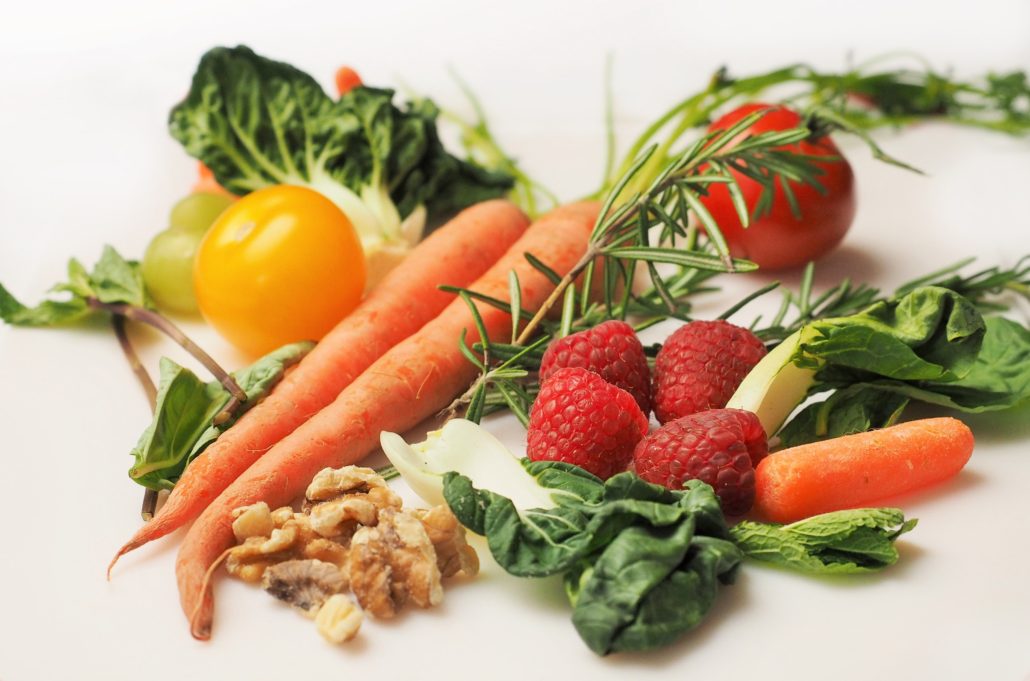We know that regular brushing and flossing are necessary when it comes to keeping your teeth free of plaque and tartar build up. But your diet can help take your quest for oral health one step further. When you follow a well-balanced diet, your body—including the mouth—gets the nutrients it needs to stay healthy, fend off infection, and keep your smile beautiful.
Foods that are high in sugar, carbohydrates, and starch are also high in plaque acids. These acids are abrasive and cause the tooth enamel to weaken. This breakdown of enamel is often the cause of cavities, which can lead to bigger problems including gum disease and tooth decay.
Realistically, it’s hard to avoid food that contains some form of sugar: even go-to healthy foods including milk and vegetables are culprits. So instead of cutting sugar out completely, it’s most important to consume added sugars in moderation to limit the effect on your enamel and gums.
Packing on sugary treats like candy and soda can wreak havoc on your oral health and may cause a decline in your overall health. To combat those foes, we recommend the following healthy foods to keep your mouth happy and your wellness optimal.
Cheese
If cheese is one of your favorite indulgences, you’re in luck. Cheese contains enamel-strengthening nutrients like calcium and protein, but it doesn’t stop there. Chewing this (sometimes stinky) snack creates a surplus of saliva in the mouth, which in turn increases the pH levels. That high level of pH is great for fending off tooth decay and keeping the tooth surface clean.
Yogurt
The calcium and protein in yogurt, like cheese, aid in the strengthening and health of your teeth. Additionally, the good bacteria in yogurt (probiotics) benefit your gums by outnumbering the bad bacteria that causes cavities. There are a lot of yogurt options on the market, so we recommend plain yogurt with no added sugar or flavoring to gain the maximum benefit.
Leafy Greens
Lush and leafy greens are a key part of a healthy diet. The folic acid they contain is a great source of vitamin B, which is known to treat gum disease, especially in pregnant women. Whether you put them in a salad, on pizza, or in a smoothie, leafy greens are an easy way to pack your diet with vitamins and minerals you may be missing.
Apples
Like cheese, even the action of eating an apple is beneficial to your mouth because of the saliva it produces. Apples also contain a lot of water that aids in washing away bacteria and food particles that may otherwise build up and cause future damage. They’re also high in fiber which stimulates the gums and scrubs away leftover germs.
Carrots
Crunchy carrots have the same saliva-producing element of apples, helping to wash away the chance of cavities. High in fiber and vitamin A, carrots are the perfect accent on top of a salad, and they’re also easy to grab and go when you’re on the move.
Celery
Though the strings in celery can be annoying, they also act as nature’s toothbrush. The crunchy vegetable increases saliva production while simultaneously scrapes food particles and bacteria away from your teeth. Celery is also good for your gums, giving them a boost of vitamins A and C.
Almonds
High in crunch and calcium, almonds are low in sugar. They also have an abrasive texture which can work like an exfoliator for your teeth to remove surface stains and bacteria.
Drink up!
If you incorporate all of the above into your diet, you should still pay attention to what you’re drinking. Water is always the safest, healthiest option since it doesn’t contain calories, sugar, or anything that isn’t natural.
